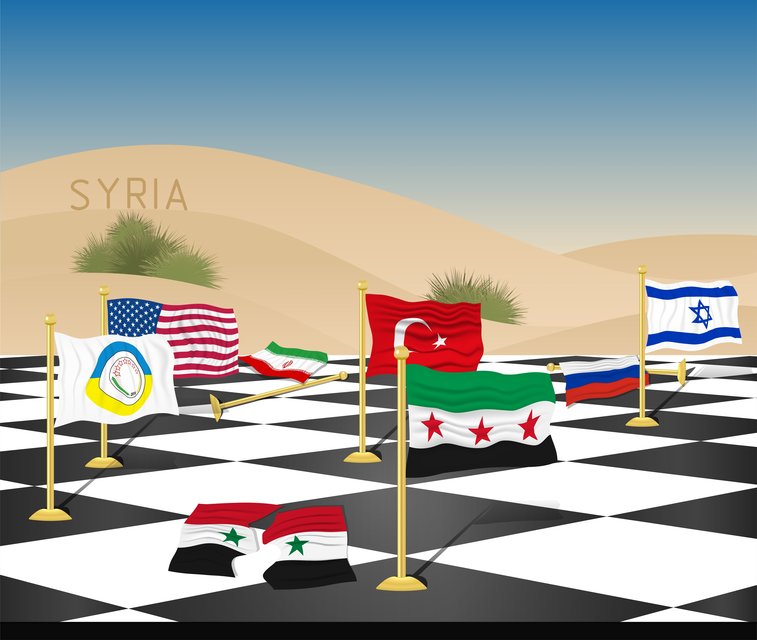
Since the fall of Bashar al-Assad's regime in December 2024, Syria has become a battleground between Israel and Turkey. Ankara considers itself the sponsor of the transitional government and exercises a form of protectorate over the country. Taking advantage of the war in Gaza, President Erdogan is presenting himself as the champion of the Palestinian cause[1] and making inflammatory statements for domestic consumption, prompting the partisan press to call on the Turkish army to become directly involved in defending the enclave[2] . This has reached the point where some Israeli observers see Turkey as a threat on a par with Iran. In this tense context, it is unclear whether the current talks on a possible security agreement between Israel and Syria, which began in Paris last August, will be successful in the near future.
Turkey in Syria
It was on Syrian territory under Turkish control that Ahmed al-Charaa's Hayat Tahrir al Cham (HTC), formerly a branch of al-Qaeda, was created in 2017. This entity was the dominant force in the governorate of Idlib, in northwestern Syria. The Kurds, who made up the bulk of the province's population, had been driven out by Turkish interventions and replaced by "internally displaced persons"[3] , Sunni civilians and Islamist jihadist rebels controlled by Turkey. It was from Idlib that the HTC forces set out and, with almost no fighting, precipitated Bashar al-Assad's flight on December 8, 2024. Turkey was the first country to recognize the legitimacy of al-Sharaa's government. When welcoming Erdogan to the White House on September 25, 2025, Donald Trump said, referring to the new Syrian government, "[Mr. Erdogan] has taken control of Syria and he doesn't want to take credit for it. You know, all these people are his helpers." The US president was careful to point out that he had lifted sanctions against Syria—imposed during Bashar al-Assad's time—at Ankara's request. He said, "The future of Syria is in Erdogan's hands." It was during this visit that the US president declared his opposition to Israel's plan to annex the West Bank... as if to express his consideration for his Turkish counterpart.
Ankara is not ready to abandon its position as Syria's self-proclaimed protector. Turkish Foreign Minister Hakan Fidan never misses an opportunity to assert that his country will not allow any action that could undermine the territorial integrity of its neighbor. In fact, Ankara and Damascus are stepping up their military and economic cooperation agreements. Upon his return from China, where he attended the Shanghai Cooperation Organization summit, President Recep Tayyip Erdogan declared in early September that "Turkey and Syria will not tolerate any attempts at destabilization."
1) Turkey's aims in Syria are political, military, and economic
Political aims
Neutralizing the Kurds in northern Syria was already one of Turkey's objectives when it began to get involved in the Syrian uprising in 2011. On the one hand, it put pressure on Bashar al-Assad to accept a compromise and, on the other, it invited the rebel leaders to begin …
This website is freely accessible. To continue reading, you need to register an account.
I already have an account
I create my account
This will be your personal account where you could consult anytime :
- Order history
- Links to purchased magazines, articles, or interviews
- Personal informations













